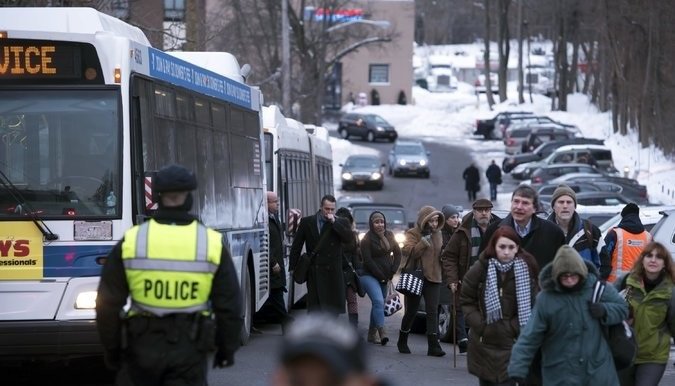International Labor Organization's (ILO) C121 - Employment Injury Benefits Convention, 1964 [Schedule I amended in 1980] (No. 121)
Article 7
Each Member shall prescribe a definition of "industrial accident", including the conditions under which a commuting accident is considered to be an industrial accident, and shall specify the terms of such definition in its reports upon the application of this Convention submitted under Article 22 of the Constitution of the International Labour Organisation.
Where commuting accidents are covered by social security schemes other than employment injury schemes, and these schemes provide in respect of commuting accidents benefits which, when taken together, are at least equivalent to those required under this Convention, it shall not be necessary to make provision for commuting accidents in the definition of "industrial accident".
http://www.ilo.org/dyn/normlex/en/f?p=NORMLEXPUB:12100:0::NO::P12100_INSTRUMENT_ID:312266
P155 - Protocol of 2002 to the Occupational Safety and Health Convention, 1981
Article 1
(d) the term "commuting accident" covers an accident resulting in death or personal injury occurring on the direct way between the place of work and:
(i) the worker's principal or secondary residence; or
(ii) the place where the worker usually takes a meal; or
(iii) the place where the worker usually receives his or her remuneration.
http://www.ilo.org/dyn/normlex/en/f?p=NORMLEXPUB:12100:0::NO::P12100_ILO_CODE:P155
I think "commuting accidents" should be excluded from the definition of "accidents at work or occupational accident” and can be covered by other insurance system because Employer can't control Employees' actions:
- What to drive
- How to walk
- Where to go
- What to do after or before work hours outside of their premises.
Employee should be responsible for own actions and Company is not Kindergarten.
----------------------------
Ganjiguur Bukhbat
TheSafetyPoster.com






